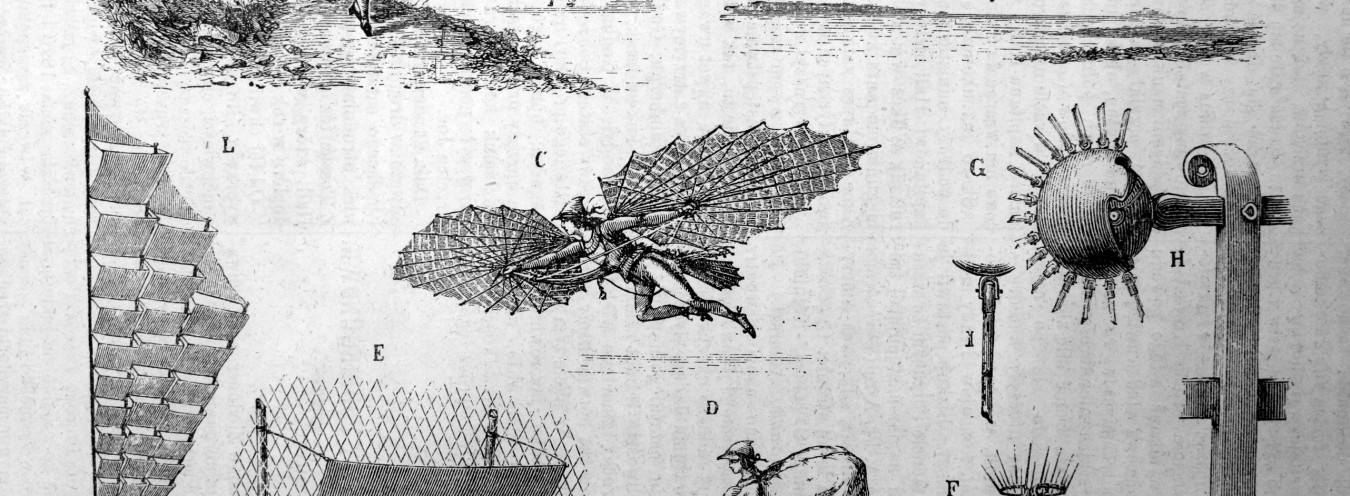
Utopia
When I came here for the first time I could hardly believe my eyes. I seemed to be in Utopia, or in the pages of a boring but virtuous novel, in which the author describes what the gentry should be like, but never are. (411)
Utopia (Greek, from ou tópos: no-place, non-existent place) is an ideal land of perfect happiness achieved mainly through the proper organisation of the society. It is generally believed that the first truly comprehensive scheme for an idealistic society and a detailed vision of such a community is Thomas More’s On the Best State of a Republic and on the New Island of Utopia (1516).
In Poland, didactic portrayals of utopian societies or landowner’s households were first created by Enlightenment writers of philosophical fables, such as Ignacy Krasicki, the author of The Adventures of Mr. Nicholas Wisdom (1776) and Pan Podstoli (Royal Pantler, 1778–1803). It is in this context that the image of the Zasławek estate governed by the Duchess is utopian, as implied by Julian Ochocki during a conversation with Wokulski: ‘do you see those palaces? They’re farm cottages for labourers. And the house over there is a refuge for farm children: there are some thirty of them, all washed and cared for like little princes… And that villa is a shelter for old people.’
References to this primary, most traditional reading of utopia are accompanied with less conventional interpretations. Some of them may be defined as the “patriotic utopia,” stemming from a sentiment characteristic for the period directly preceding the January Rising of 1863. In the novel, this type of utopia is described by Leon, a representative of patriotically active youth (students and young clerks) and a member of Wokulski’s then-circle of friends, who excitedly states: ‘From that time on […] there will be no differences between people. Gentry and bourgeois, peasants and Jews – all will be brothers.’ Such an enthusiastic prophecy of life in a free country is questioned towards the end of the book by Doctor Szuman, who – armed with his hard-gained pragmatism – concludes that the Polish tendency to develop utopian theories is a flaw, if not a disease.
Another type of utopia in The Doll is related to science and the belief that new inventions of the era of fast technological progress (such as the nineteenth century) will sharply and permanently improve the quality of life and well-being of ordinary citizens. An example of a character passionate about science is Ochocki, who, however, is bound to be disappointed with other people’s inappropriate reactions to his utopian daydreaming: ‘Yesterday, for instance, I spent a half-hour explaining to Wąsowska the advantages of steering a balloon, I told her frontiers would disappear, nations be brothers, civilisation progress… She gazed into my eyes so that I’d have sworn she understood. Then, when I’d finished, she asked: ‘Mr Ochocki, why don’t you get married?’
Yet another “utopian” science enthusiast is Professor Geist, a German living and working in Paris. In Wokulski’s eyes, he has a truly prodigious potential for making utopian dreams come true, especially after his unique gift of a fragment of metal that is five times lighter than water. After his break-up with Izabela, Wokulski conjures up visions of power that science could bestow on him and humanity in general: [He] dreamed he was a magician who possessed two trifles: power over the forces of Nature, and the power to make himself invisible. ‘I believe,’ he thought, ‘that after a few years of my rule, the world would look different… The greatest scoundrels would change into Socrates and Plato.’ Then he noticed the letter from Paris and recalled Geist’s words. The motif of Wokulski’s utopian endeavours on a journey of self-discovery is reiterated towards the end of the novel, when the protagonist tries to answer the question about the role of everything that happened by accident in his life: First, he put aside the books, some of which had shown to him that he was Don Quixote, and others had aroused within him an interest in a marvellous world where men had power over the forces of Nature. For Wokulski, an interest in science provides a substitute for the quixotic political utopia sought through the armed struggle for independence, which ended in exile following the failed January Rising.
There are two more types of utopia that can be identified in The Doll. The first one is the idealistic perception of socialism, represented by Mr Mraczewski – one of Wokulski’s salesmen who returns from Moscow with his head full of ideas about a proletarian revolution and making mankind happy through measures such as a radical reduction of working hours. The other type could be called a “realistic Paris utopia” since it portrays the real-life city as a place of almost perfect happiness (though it is true that we see it through the eyes of Wokulski, who seems to idealise it to some extent): To strive for happiness in all domains – this was the substance of Parisian life. Here, a thousand carriages were introduced to counter tiredness; to counter boredom, hundreds of theatres and shows; to counter ignorance, hundreds of museums, libraries, and lectures. Here, not only man met with concern, but even the horse, for whom a smooth road was provided. Here, care was lavished even on the trees.
This last reading of utopia, together with the initial one (represented in the novel by Zasławek), appears to be closest to the original intention of Prus the positivist, who was genuinely interested in any strategic plans for improving people’s lives and their success. That was the goal of utopia, seemingly achievable through inspiring imagination and spurring people into action.
→ Philosophy; → Coincidence; → Socialism;
Bibliografia
- J. Szacki, Spotkania z utopią, Warsaw 1980 and 2000.



